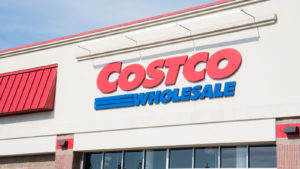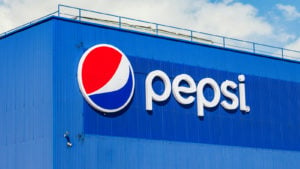In turn, that makes shares in the sector strong buy and hold choices because they tend to perform well over the long run. People need to eat, take care of personal hygiene and maintain their households regardless of the macroeconomic situation at any given point.
The result is that consumer staples stocks tend to provide steady revenues and earnings making them relatively recession resistant. It is that continuous performance that also provides the necessary funding for the dividends.
Such stocks provide a buffer against more volatile investments within common portfolios and sturdy, uninterrupted growth over the long term. That attractive combination of factors makes consumer staples worthy of consideration. Let’s take a look at three strong choices.
Costco (COST)

Costco (NASDAQ:COST) is a very interesting stock overall and one to consider for its relatively recession proof nature.
I think many investors might be under the impression that Costco serves a lower income buyer due to its bulk products. However, research suggests that the average Costco shopper is much more affluent and makes approximately $125,000 per year.
Notably, affluent consumers tend to fare better in times of recession. That’s part of the reason I believe Costco will continue to do well despite its current valuation.
The stock’s current P/E ratio is just about as high as it’s been over the last decade. The company offers a curated selection of goods tailored toward what is actually a more affluent consumer base overall. Higher income families and individuals have done well during the current macroeconomic phase. As the divide between the rich and the poor grows in America, Costco should only increase in value.
PepsiCo (PEP)

PepsiCo (NYSE:PEP) is an earnings machine at the moment and more generally a dependable investment for recessionary times.
It’s a lot like its main rival Coca-Cola (NYSE:KO) in that regard. Both companies produce high margin products that result in strong and consistent earnings which fund dividends. In PepsiCo’s case, that dividend has not been reduced since 1973. With Coca-Cola, it’s even longer.
Furthermore, PepsiCo is a great dividend stock that provides income to investors that access the buffer during market downturns or higher inflation times. That dividend yields 3.3% at present, which outstrips inflation, making it a reasonable investment.
PepsiCo doesn’t grow particularly rapidly. The company currently expects 4% organic growth this year. However, management is giving guidance for an 8% increase in EPS. It is further evidence that PepsiCo is an earnings magnet and exactly the consumer staple that investors seek. The earnings fund dividends provide overall stability that make it a worthy investment in the worst of times.
Walmart (WMT)

The business model of Walmart (NYSE:WMT) is designed to thrive across a variety of macroeconomic environments. The stock tends to perform well most of the time and is particularly resilient as consumers trade down during tougher times.
Walmart has long been the leader in retail and has made strides in e-commerce of late. The company is growing quickly and posted global ecommerce growth of 21% recently. And, Walmart is quickly growing its advertising presence through its e-commerce site, which grew by 24% during the same period.
Beyond that, Walmart continues to be the largest grocer in the U.S. Also, the company is continuing to move into healthcare and will host Humana clinics at its health centers. Walmart will continue to be among the very best choices for recession resistant consumer staples investors.
On the date of publication, Alex Sirois did not have (either directly or indirectly) any positions in the securities mentioned in this article. The opinions expressed in this article are those of the writer, subject to the InvestorPlace.com Publishing Guidelines.
On the date of publication, the responsible editor did not have (either directly or indirectly) any positions in the securities mentioned in this article.
Alex Sirois is a freelance contributor to InvestorPlace whose personal stock investing style is focused on long-term, buy-and-hold, wealth-building stock picks. Having worked in several industries from e-commerce to translation to education and utilizing his MBA from George Washington University, he brings a diverse set of skills through which he filters his writing.
